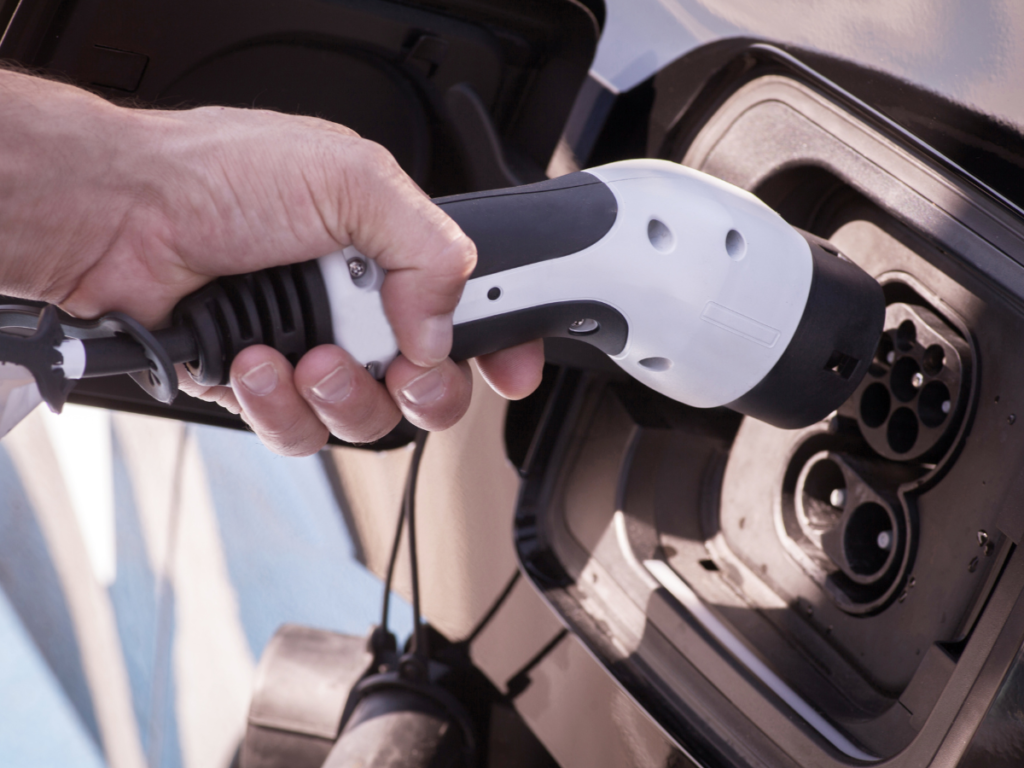A traditional car uses gasoline as its fuel source, and an electric car uses electricity. A traditional car is powered by an internal combustion engine that uses gasoline as its fuel source, and an electric car is powered by a motor that uses electricity generated by batteries.
A gas-powered engine runs low on gasoline after being used for extended periods and needs to be refilled. An electric car runs low on electricity after being used for extensive periods and needs to recharge. Charging an electric vehicle is just like charging an electronic device and can be done at a charging station or from home.
The capacity to be charged at home translates to convenience, and most EV owners will park their electric car in the garage, plug in the charger and leave the car to charge. Electric cars can also be charged using a standard outlet or a wall-mounted charger.
Older model electric cars can take up to 10 hours to charge fully, but the newer models can charge up to 80% of their capacity in under 60 minutes.
According to Northwest Collision Center, an auto body shop in St. Petersburg, FL, charging your electric vehicle at home equals convenience and cost savings because residential electricity consumption is usually charged at a lower rate. The average cost of charging an EV at home is less than the cost of having an air conditioner.
How to Charge Electric Vehicles at Home?
To charge your electric car at home, it is essential that you have a charging port installed where you park your car. For most electric car drivers, this will mean having a charging port installed in the garage. A home charging port will charge faster, and it has safety features built into the charger itself.
Dedicated home charging ports are compact and usually mounted to a wall. Charging ports come complete with a charging cable that carries the electrical current from the port outlet to the car’s inlet. You can also use electric vehicle supply equipment (EVSE) as a backup for emergencies.
How Much Does It Cost to Install an EV Charger at Home
You can install an electric charging port at home for approximately $630. This may seem expensive, but in the long run it will actually save you money because you do not have to pay any charging station fees, and you only pay the residential rate for the exact amount of electricity you use.
How Fast Can You Charge an EV at Home?
An electric car charging speed is measured in kilowatts. You can charge electric vehicles from 3.6kW up to 7kW, which equals 15-30 miles of range per hour of charging. The maximum charging speed is determined by your electric car charger, but the usual maximum charging speed for home charging points is 7kW.
Alternatively, you may choose to charge your electric vehicle using a three-pin plug that charges at a rate of 2.3kW, which is a rate of 8 miles of range per hour.

Getting an EV Charging Port Installed at Home
To install an EV charging port at home, you will need the help of a professional charging provider. The installation process involves mounting the charge port on an exterior or garage wall. The charging port has to be close enough to where you park your electric car so it can be easily connected. Ordinarily, it takes, on average, close to 3 hours to install a charging port.
How Often Should You Charge an EV at Home?
There is no limit to how often you can charge your electric car. It all depends upon whatever your needs are. Like any electrical device, you can charge it when the charge is running low, or you can charge it to top up the amount of charge. Most EV owners charge their cars when not in use. This maintains a full charge so the car can be used for longer periods of time without having to be charged.
Many electric car owners charge their cars at night to avail of cheaper electricity rates. This also means the car will be fully charged when being used in the morning. When charging your electric car, you do not have to worry about overcharging because all home charging portals will automatically stop charging when the EV battery is fully charged.
Optimizing Your EV Charger at Home
As more and more people are charging their electric vehicles at home, it is important to know the best way to save energy and electricity when charging. In other words, it’s important to optimize your EV charger.
For Cheaper Energy
In the long run, it is cheaper to utilize electricity as a power source for your car than gasoline. This is one of the major attractions of an electric car, To maximize the savings on energy costs, set a regular schedule for charging your EV. Keep track of your battery level and only charge when your EV battery reaches a certain level.
Key Takeaway
If you are an owner of an electric vehicle or are planning to own one at some point in the future, it is best that you know all of your options for saving energy and money. This applies to charging, maintenance, and, when needed, repair. If you are in need of electric vehicle repairs and more, it’s best to contact a reputable auto body repair shop to make sure that your electric vehicle needs are met.






